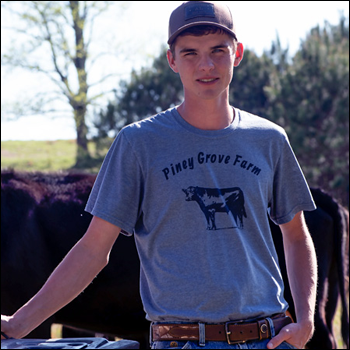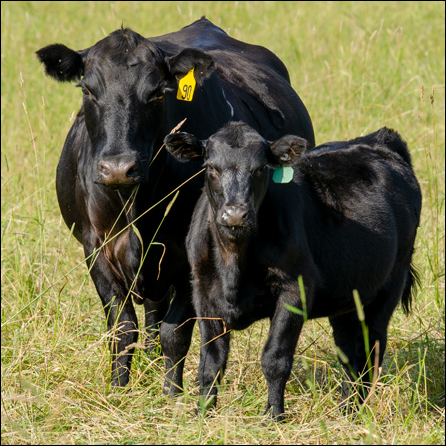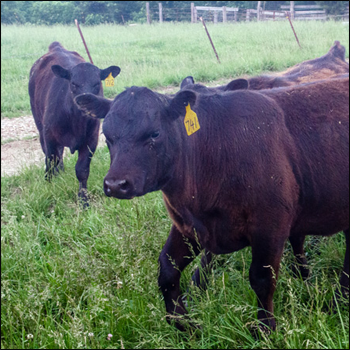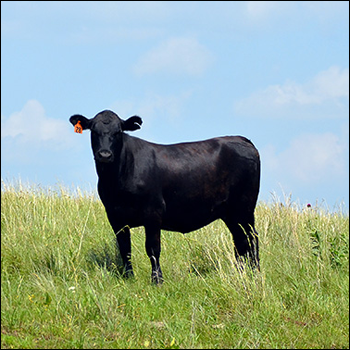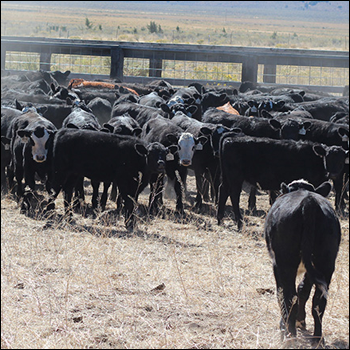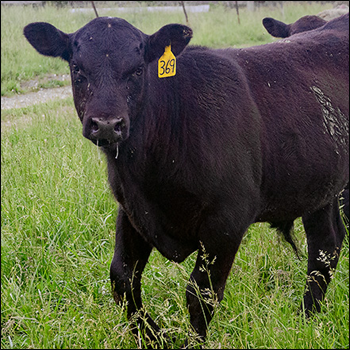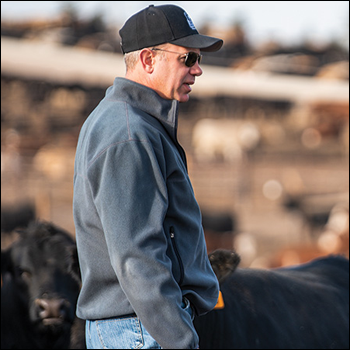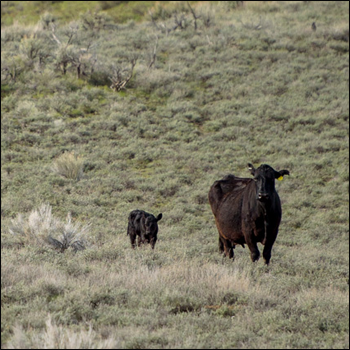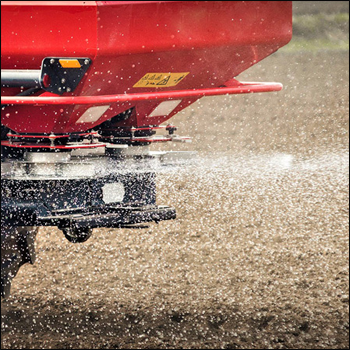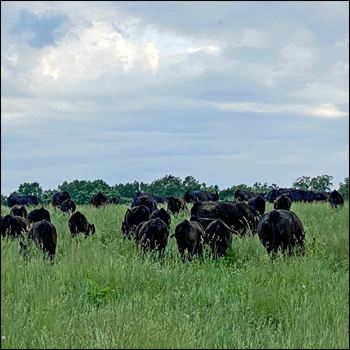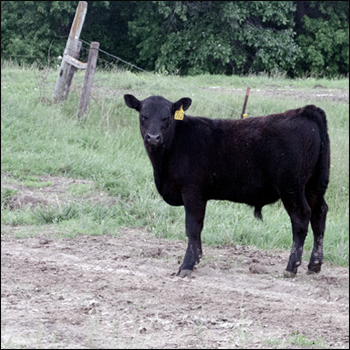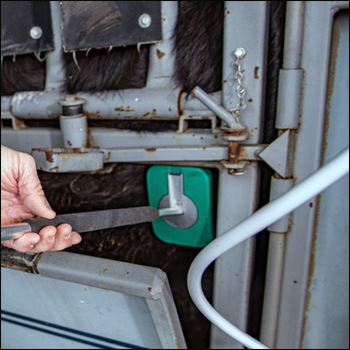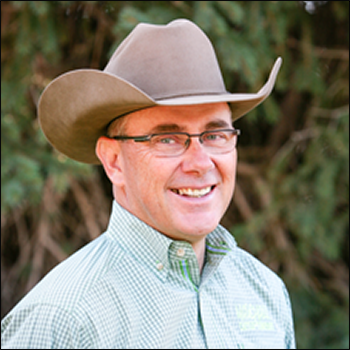News & Notes
Industry tidbits from around the country.
Registration opens for Texas A&M Beef Cattle Short Course
Beef cattle producers worldwide are invited to attend the 68th annual Texas A&M Beef Cattle Short Course Aug. 1-3 on the Texas A&M University campus.
 Cattle producers from throughout the United States and several other countries attend the annual Texas A&M Beef Cattle Short Course. [Texas A&M AgriLife photo by Laura McKenzie] |
The program is expected to offer a full agenda for everyone, from the novice livestock operator to the seasoned professional.
The event’s Cattleman’s College will feature more than 20 concurrent sessions, with topics including animal health, nutrition, reproduction, breeding, genetics, selection, research, marketing and handling. The management sessions will cover business, forage, range and purebred cattle. Speakers will also address landowner issues and fence building. At least nine pesticide continuing education units and 14 veterinarian continuing education credits are available to attendees.
More than 150 agriculture-related businesses and trade show exhibitors are expected to attend the course.
Read more at https://bit.ly/0622EXTRANN01.
Beef Quality Assurance Transportation workshops begin June 14
Beef cattle transporters are receiving notice from major packers reminding them to renew their Beef Quality Assurance Transportation (BQAT) certificate. To help them renew or obtain new certification, Iowa State University Extension and Outreach will offer BQAT trainings across northwest Iowa.
“BQAT certification was initiated several years ago by major packers,” says Extension Beef Specialist Beth Doran, organizer of the training sessions. “The packers require custom truckers and producers hauling cattle with their own semi or trailer to have a current BQAT card. The objectives are human safety, animal comfort, and transportation protocols to help provide a high-quality product for the consumer.”
Trainings are scheduled for the following dates and locations, with preregistration required by calling the phone number listed for the site.
- June 14 – ISU Extension and Outreach Sac County Office, 620 Park Ave., Sac City. RSVP to 712-662-7131.
- July 12 – ISU Extension and Outreach Clay County Office, 110 W. 4th St., Spencer. RSVP to 712-262-2264.
- Aug. 9 – ISU Extension and Outreach Sioux County Office, 400 Central Ave. NW, Orange City. RSVP to 712-737-4230.
- Nov. 29 – ISU Extension and Outreach Cherokee County Office, 209 Centennial Dr., Cherokee. RSVP to 712-225-6196.
All workshops are from 1 to 3 p.m. and are free to attend. Participants should preregister two days in advance of the workshop they plan to attend.
For those unable to attend a training, BQAT is available online.
Research to protect cattle industry from pesticide-resistant cattle fever ticks
Cattle fever tick populations with resistance to acaricides are a growing concern within the Texas cattle industry.
Adela Chavez, AgriLife Research entomologist and assistant professor, and Patricia Pietrantonio, an AgriLife Research fellow and professor, both in the Texas A&M College of Agriculture and Life Sciences Department of Entomology, each received a USDA National Institute of Food and Agriculture (NIFA) grant directed at creating new ways to prevent tick infestations and protect Texas cattle from the diseases spread by cattle fever ticks.
Cattle fever ticks represent one of the greatest threats to the U.S. cattle industry. The ticks carry parasites and bacteria that cause deadly diseases, including bovine babesiosis and anaplasmosis. A few treatments, but no effective vaccines, exist for these diseases.
Pietrantonio received $625,000 for a three-year study to identify synthetic molecules that can be developed into treatments that kill cattle fever ticks but are nontoxic for livestock or humans. Chavez received $530,405 for a two-year study focused on creating vaccines for cattle.
“These studies have enormous implications — not only for the cattle industry, but also for our overall biological understanding of ticks,” says Phillip Kaufman, head of the Texas A&M Department of Entomology. “Novel research like this is challenging, but it is vitally important for the future of animal and human health.”
Ticks and tick-borne diseases significantly affect livestock globally. Tick feeding can reduce milk production and weight gain, damage hides, and cause anemia or even death.
Ticks with resistance to permethrin (an acaricide not used against cattle fever ticks in Texas, but used widely in Mexico) have been found in Texas, despite tick quarantine efforts. The movement of animals carrying ticks across the U.S.-Mexico border is a constant menace, as cattle ticks could become established and possibly transmit disease-causing pathogens to cattle herds. Tick resistance to acaricides makes it imperative to develop both anti-tick vaccines and new anti-tick treatments that are safe for vertebrate animals.
Read more at https://bit.ly/0622EXTRANN03.
USDA to allow producers to request voluntary termination of Conservation Reserve Program contracts
The USDA is allowing Conservation Reserve Program (CRP) participants in the final year of their CRP contract to request voluntary termination of their CRP contract following the end of the primary nesting season for fiscal year 2022. Participants approved for this one-time, voluntary termination do not have to repay rental payments, a flexibility implemented this year to help mitigate the global food supply challenges caused by the Russian invasion of Ukraine and other factors. USDA also announced additional flexibilities for the Environmental Quality Incentives Program (EQIP) and Conservation Stewardship Program (CSP).
The Farm Service Agency (FSA) is mailing letters to producers with expiring acres that detail this flexibility and share other options, such as re-enrolling sensitive acres in the CRP continuous signup and considering growing organic crops. Producers are asked to make the request for voluntary termination in writing through their local USDA Service Center.
If approved for voluntary termination, preparations can occur after the conclusion of the primary nesting season. Producers will then be able to hay, graze, begin land preparation activities and plant a fall-seeded crop before Oct. 1, 2022. For land in colder climates, this flexibility may allow for better establishment of a winter wheat crop or better prepare the land for spring planting.
Participants can choose to enroll all or part of their expiring acres into the continuous CRP signup for 2022. Important conservation benefits may still be achieved by re-enrolling sensitive acres such as buffers or wetlands. Expiring water quality practices such as filter strips, grass waterways, and riparian buffers may be eligible to be re-enrolled under the Clean Lakes, Estuaries, and Rivers (CLEAR) and CLEAR 30 options under CRP. Additionally, expiring continuous CRP practices such as shelterbelts, field windbreaks, and other buffer practices may also be re-enrolled to provide benefits for organic farming operations.
If producers are not planning to farm the land from their expiring CRP contract, the Transition Incentives Program (TIP) may also provide two additional annual rental payments after their contract expires on the condition they sell or rent their land to a beginning or veteran farmer or rancher or a member of a socially disadvantaged group.
Producers interested in the continuous CRP signup, CLEAR 30, or TIP should contact FSA by Aug. 5, 2022.
Read more at https://bit.ly/0622EXTRANN05.
NCBA blasts overreaching, political special investigator bill
The National Cattlemen’s Beef Association (NCBA) has condemned what it terms the unfunded and duplicative Meat and Poultry Special Investigator Act of 2022, which was marked up on May 18 by the House Agriculture Committee.
“Cattle producers strongly support effective oversight of the meatpacking sector, but the special investigator bill does nothing to accomplish that goal,” says NCBA Vice President of Government Affairs Ethan Lane. “Rather than focusing on adequate staffing and funding for the woefully under-resourced Packers and Stockyards Division at USDA, this hasty proposal was rushed through the legislative process without consideration of the confusing bureaucratic mess it would create. Arming USDA with unchecked subpoena and prosecutorial power while significantly undercutting the Department of Justice’s role in the process is poor practice.”
To comply with this legislation, USDA will be forced to divert resources from other mission-critical areas of the Agricultural Marketing Service (AMS), diverting resources from the essential programs cattle producers rely on every day, according to the cattlemen’s group.
Angus Foundation’s second annual Angus Day of Giving raises more than $55,000
The Angus Foundation hosted its second annual Angus Day of Giving May 17, and raised more than $55,000 to further its mission of supporting Angus youth, education and research efforts. The event celebrated the day George Grant brought the first Angus bulls to Victoria, Kan. — May 17, 1873.
“We were amazed by the overwhelming generosity we saw from the Angus family for our second annual Angus Day of Giving,” said Jaclyn Upperman, executive director of the Angus Foundation. “Our donors made it a day to not only celebrate the legacy of our breed, but also write the next chapter of the Angus story.”
The Angus Foundation received charitable gifts from donors across the country, including a $20,000 matching gift from an anonymous Angus breeder.
Gifts made on Angus Day of Giving support the Angus Fund, which provides unrestricted support as the Angus Foundation works to carry out its mission.
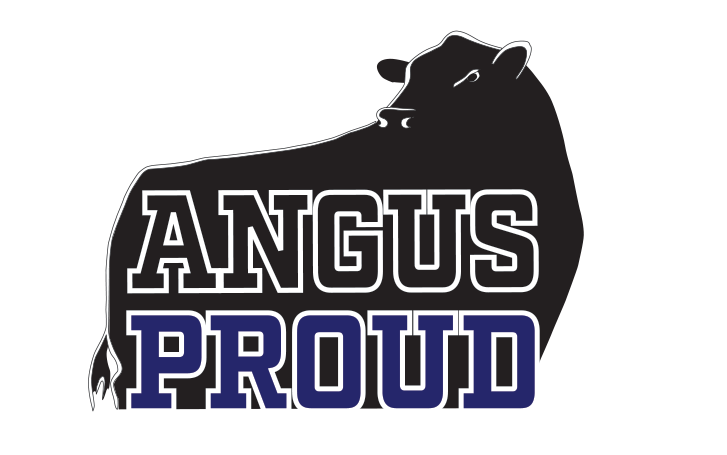
Angus Proud
In this Angus Proud series, Editorial Intern Jessica Wesson provides insights into how producers across the country use Angus genetics in their respective environments.
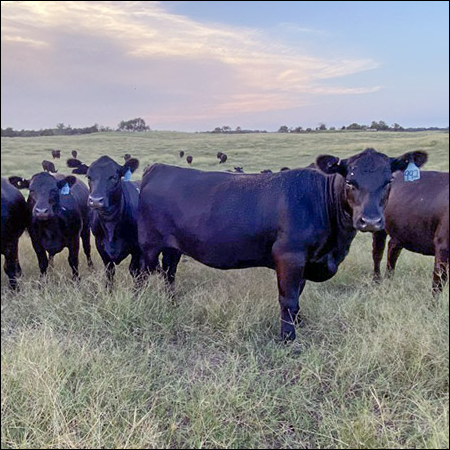 Angus Proud: Scott Sproul
Angus Proud: Scott Sproul
Oklahoma operation learned wisdom of moving calving season to better suit their marketing needs.
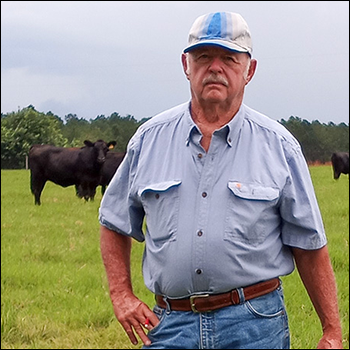 Angus Proud: Bubba Crosby
Angus Proud: Bubba Crosby
Fall-calving Georgia herd uses quality and co-ops to market calves.
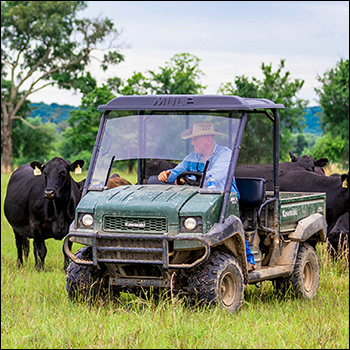 Angus Proud: Jim Moore
Angus Proud: Jim Moore
Arkansas operation retains ownership through feeding and values carcass data.
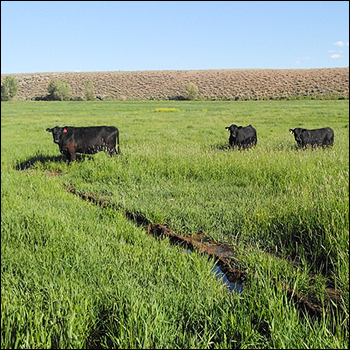 Angus Proud: Stephen Shiner
Angus Proud: Stephen Shiner
Idaho operation rotates pastures in summer and raises crops for winter.
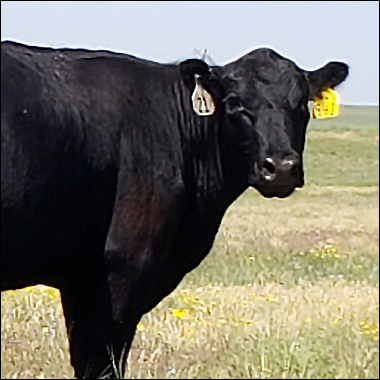 Angus Proud: Brian Nusbaum
Angus Proud: Brian Nusbaum
Angus cattle fit cattleman’s marketing goals and helped him set out on his own.
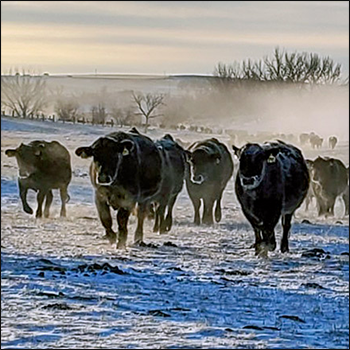 Angus Proud: Les Shaw
Angus Proud: Les Shaw
South Dakota operation manages winter with preparation and bull selection.
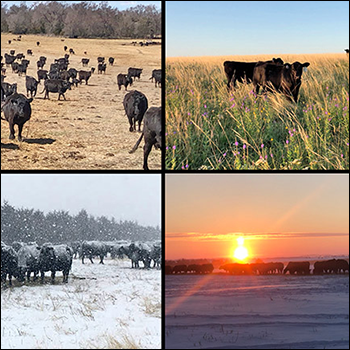 Angus Proud: Jeremy Stevens
Angus Proud: Jeremy Stevens
Nebraska operation is self-sufficient for feedstuffs despite sandy soil.
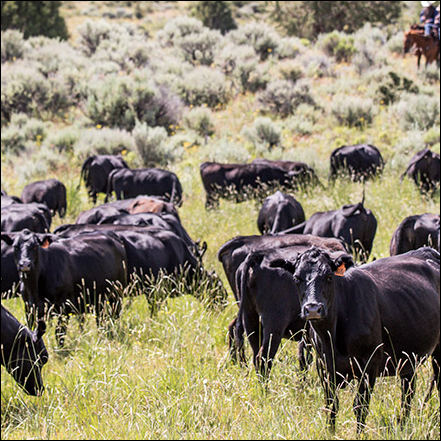 Angus Proud: Dave Rutan
Angus Proud: Dave Rutan
Angus breeder gets the most out of his bull investment by partnering with opposite calving-season operation.
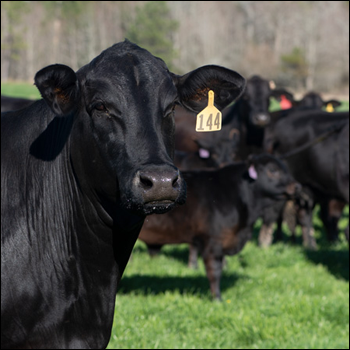 Angus Proud: Nickey Smith
Angus Proud: Nickey Smith
AngusLink helps Louisiana cattleman gain more for his calves.
